We asked SparkFun employees about their favorite piece of tech they’ve ever owned. Could be anything; a game console, a computer, or even the Motorola Razr they had in 2007. Everyone has something that got them started asking questions about how devices worked, or just something that holds a special place in their heart. Here are ours:
Sean Hollister: External CD Burner
My external CD burner lives in my heart somewhere between classic mix tapes and Spotify shared playlists. I remember buying those huge stacks of blank CDs and pirating music into my ITunes library (probably destroying our old PCs). The best part was that you could draw directly onto the CD to personalize the look of it too. Friends, crushes, family road trips... pretty much everyone had to endure whatever unholy mixture my adolescent mind had cooked (and then burned) up. Some of them still circulate around my friend group as a lasting joke and reminder of a simpler time - all you needed was Limewire, a blank CD, a sharpie, and a dream.
Lauren Gregory: the TI-89 calculator
I would've said the floppy disk for the meme, but I've never actually used one. The TI-89 was unstoppable, and I think I miss it so much because someone stole it from me in Physics 325 in college. The solver function? The rugged lack of a backlight? The ability to upload games? Symbolic integrals? Unparalleled piece of machinery. It was like having Python do all my math for me before I knew what Python was. You can even (kind of) run MicroPython on it!
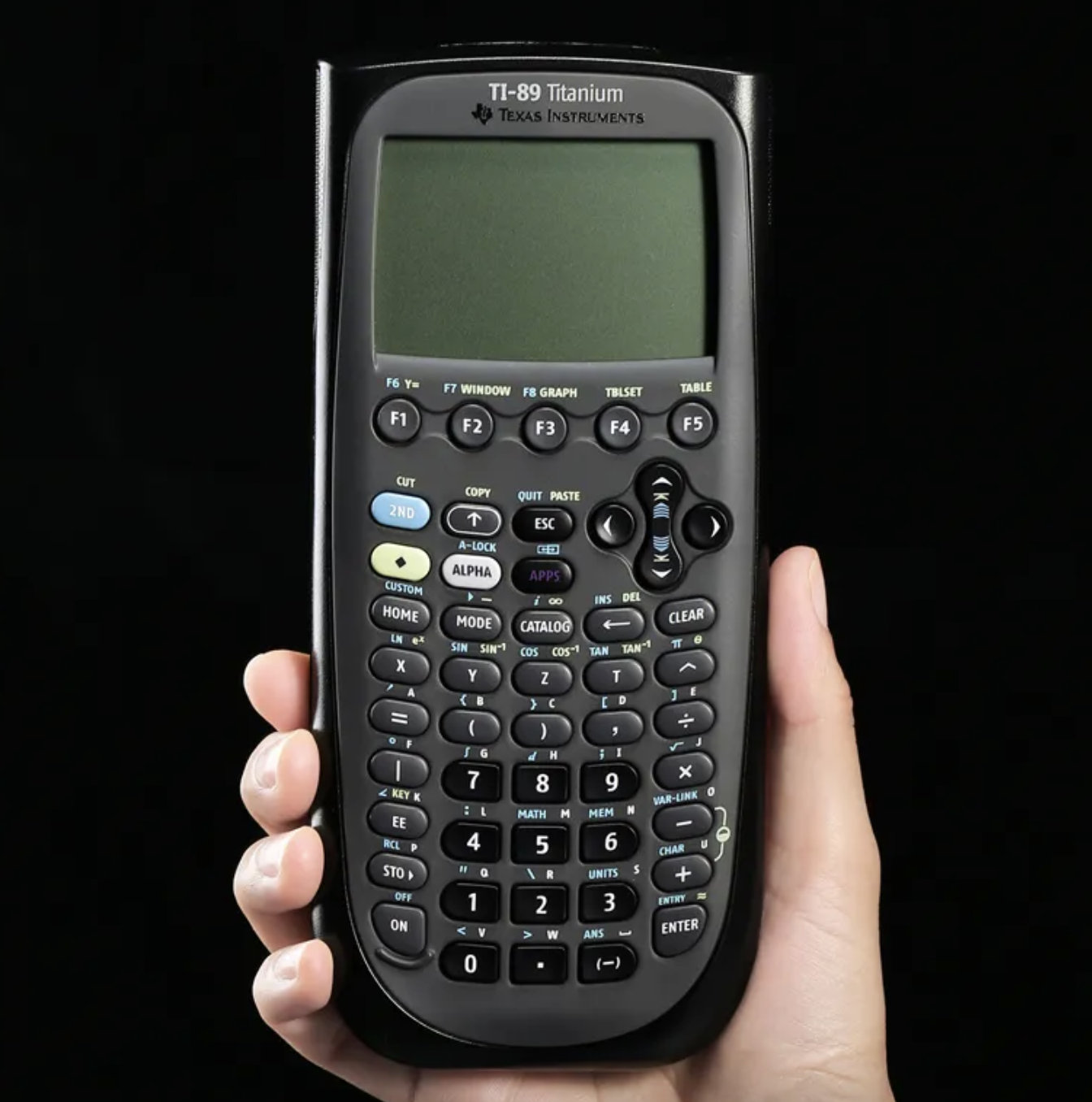
Chris McCarty: The iPod Classic
It's a classic! I made this purchase at a time in my life when I wasn't making too much money, but the aspect of having thousands of tracks available at my fingertips was an amazing thought! To have entire albums from Streetlight Manifesto, The Mars Volta, Saves the Day, and more was a complete change from how I thought I could ingest music.
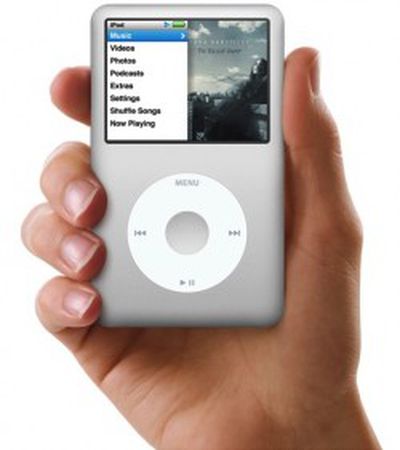
Rob Reynolds: My First 3D Printer
My first printer started something big: I’m still designing and printing pieces at least several times a week! I’m actually listening to my printer making circles right now, and it’s one of my favorite sounds :)
Dryw Wade: N64 and the Original Xbox
I’m not old enough for any earlier tech ;)
Elias Santistevan: Nostromo
My first gamepad! Used one when World of Warcraft was still a new thing.
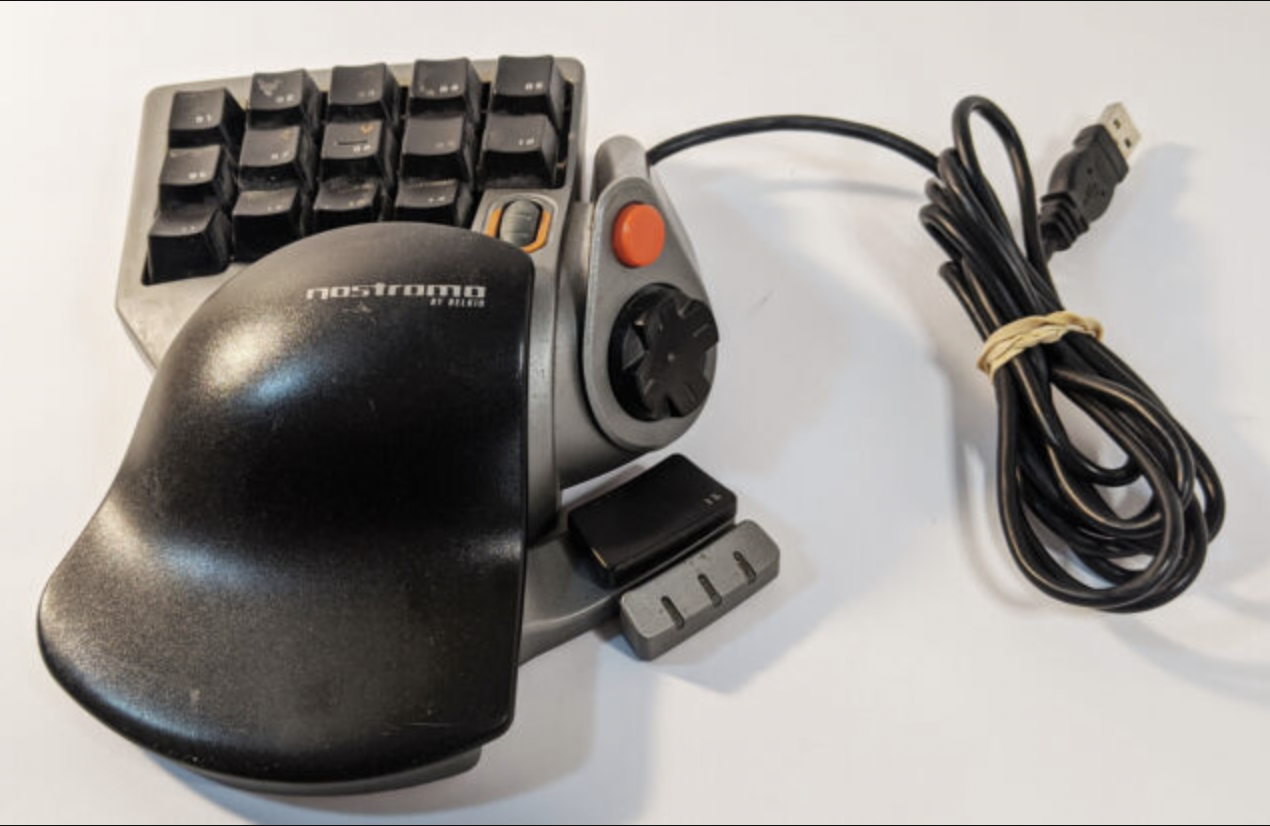
Nick Brogna: Packard Bell Legend 486SX
My older cousin showed me BASIC and wrote a simple ‘password’ program with it that 10 year old me spent countless hours taking apart and putting back together to try to understand how computer programs work. Plus, it came with a CVGA monitor so I could play King’s Quest in all its 4-color glory.

Madison Chodikov: Clear phone from the 90’s
I remember going to my grandparents house and using this phone and just staring at it for hours, thinking how cool it was to see the intricate parts on the inside with all the cool colors. Definitely one of my favorite things we received from them once they downsized!

Molly Rodgers: The Jurassic Park III Dino-Dex (circa 2002)
From jurassictoys.net, “a Pokédex-style organizer that contains detailed information and graphic animations on over 70 dinosaurs. It comes with two games: Battle Dome in which you go head-to-head in a fight-to-the-death against another dinosaur and the DNA Lab which will let you create your own hybrid dinosaurs. The Dino Dex is also an organizer that lets you store names, phone numbers, notes, and there’s a calculator on there as well.” I was 6 and I used this thing until it died.

John Trepke: AKG Sextett K240 4-600 Ohm late production model 6 passive driver headphones
Made in Austria from the 80s. Can't drive these without a desktop headphone amplifier! Still have my pair and use them at SFE HQ when I feel all audiophile like. Had these for about 15+ years. They sound better than most modern headphones. Being semi opened back helps with a clearer soundstage.


Susan Mayor: Apple Performa
My first computer purchase from 11/18/96. I recently found the receipt:

Glenn Samala: Atari 400
The first computer I ever owned. And yes … I also had the tape storage device like this one. Went to summer school computer camp to learn BASIC at Pace University in the 7th grade.

Close second for me was the Sharp Zaurus - (ZR-500) way ahead of it’s time circa 1996. It had email functionality (ableit through a sync function) and had hand writing recognition. Oh - and spreadsheets on a mobile device - mind blowing back in the day!

Michael Van Auken: X10 Home Automation Switches and Controls
Also, would love to see a series where we take old Archer or Heathkit kits, break down the original parts and instructions, follow up with how to implement them using modern parts and finally update them using the latest tech, for example an old light organ kit, how to recreate with current available LEDs and ICs and finally the modern version that uses a microcontroller, DSP addressable LEDs etc.
Bryan Hoff: The Original Nintendo
I had a paper route at 8 years old, getting up at 4:30am to deliver to about 80 houses. I saved up and was able to buy one in 1986. Fond memories of NES Baseball, Basketball, Zelda, Mike Tyson’s Punchout, and of course Super Mario!
Honorable Mention: The TI-92 Graphic Calculator AKA “The Grade Buyer”. When these came out, many professors didn’t understand what they were capable of. Many of my engineering classmates were putting full chapters from the text book into them, making all tests effectively open book. Since classes were graded on a curve, students effectively had to buy one to level the playing field. Hence we dubbed it The Grade Buyer.
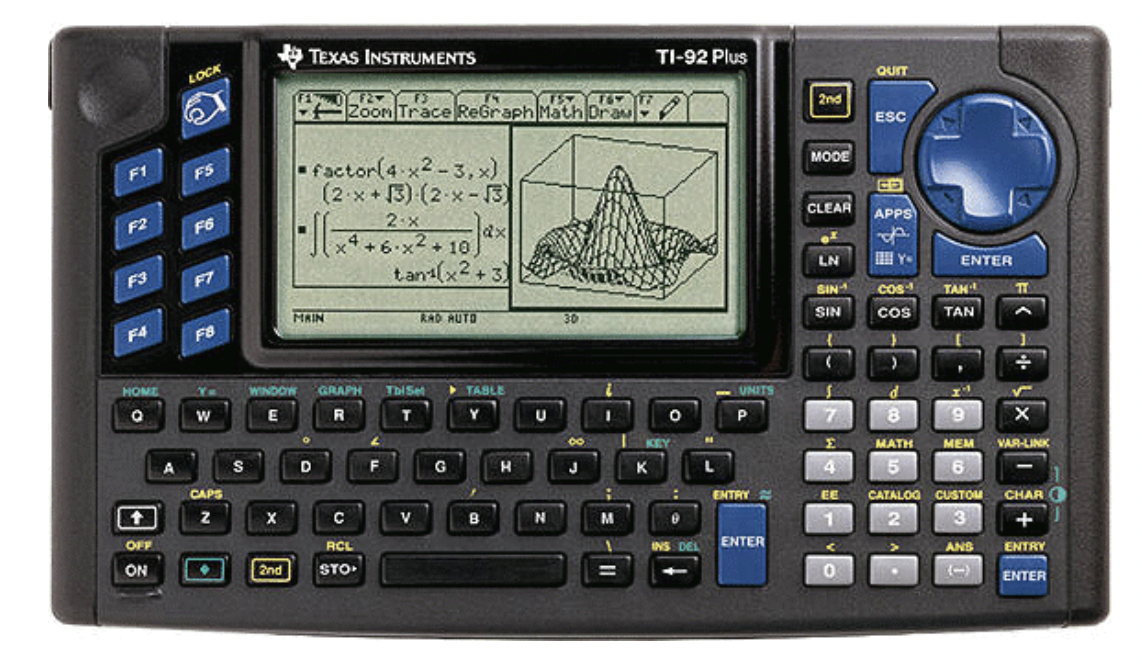
Alex Brudner: GameBoy Advance/Advance SP
There’s a special place in my heart for the GBA because growing up I went on a lot of road trips and/or had to sit in places while parents/siblings were doing other things. However, when the SP came out and it had a backlight, that definitely changed things for me. Being able to play games in dark locations or in the car was a huge benefit without needing to have a dedicated plug-in light with a tiny halogen bulb in it. Definitely appreciated that they had backwards compatibility with GB/GBC too because those were some of my favorite games. Legend of Zelda: Oracle series, Pokemon yellow/silver/sapphire, Megaman Battle Network 3.
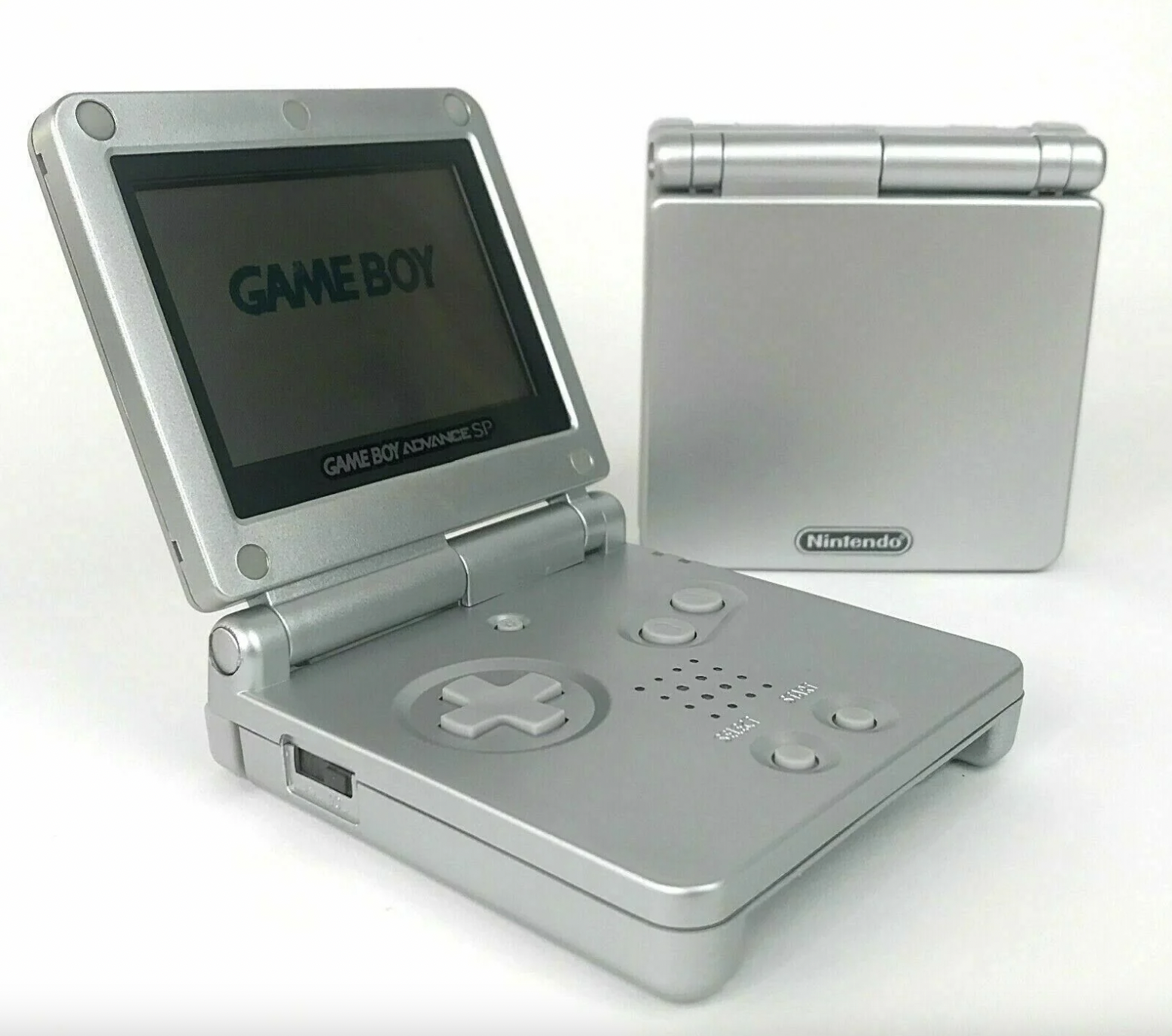
Damian Lara: The Dreamcast
It was my first console ever gifted to me, it sparked my love for gaming and obsession with Sonic The Hedgehog games. Crazy to think people are selling it for a few hundred dollars today!
Have anything in common with us? What is your favorite piece of tech you've ever owned, old or new? Let us know in the comments!







OK, I'll show my age. I've got three, plus one.
For technology in general, I'd have to say watching John Glenn's flight aboard the "Friendship 7" spacecraft in February, 1962 (I was in 2nd grade at the time).
For electronics, I recall getting a copy of Popular Electronics during one of my many hospital stays, and the projects in it intrigued me. I don't recall the exact date, but it was probably mid 1960s.
As for electronics hardware, I'd probably have to say that a neighbor's radio, which could receive shortwave broadcasts, back in the mid 1960s also fascinated me.
And for the "plus-one" "honorable mention", I'll include the HP-65 that had little magnetic cards to store programs on. That was when I was an Engineering student in college, and by then understood a fair amount about what made it "tick", but it was still pretty amazing that they could cram it into something you could hold in your hand. (However, the slide rule still had two advantages: the battery never died in the middle of an exam, and you could take the slide out and use it as a straight edge to draw graphs. I was in the last class in Engineering School that had to learn all 22 scales of a decimal trig log-log slide rule.) I, too, really miss the RPN calculators! (Hmm -- maybe all this will stir some interest in SparkFun finding a decent RPN calculator to carry...)
Amen. I'm probably about the same age as you. We grew up in remarkable times. I followed NASA from Mercury, through Apollo and the moon landing. On the 50th anniversary of the first moon landing, NASA replayed the audio of Apollo 11 on the internet. A coworker who only knew of the moon landing from history books, got interested in the audio replay.
Veterans Day weekend 2016, I met the commander of the final Space Shuttle mission. I told him that Atlantis was the second final launch that I saw, and checking off a thirty year old bucket list. That intrigued him. Chris: "Was it Apollo 17, the last moon mission?" Me: "No." Chris: "Skylab?" Me: "No." Chris: "Okay, what was it?" Me: "Apollo/Soyuz." Chris: *"That was the final flight."
Interesting tidbit: On Apollo/Soyuz they carried HP-65 calculators as "backup" for the PNGCS ("Primary Navigation and Guidance Control System", pronounced "Pings"), even though the HP-65s had no IMUs or I/O to control the rockets. Being in low earth orbit, manual "I/O" would have been sufficient had they been needed.
When Apollo/Soyuz was being planned there were a series of engineering meetings, and at first the Soviet engineers couldn't believe that the HP-65s carried by their American counterparts were real, independant programmable calculators -- they thought they must be "pocket terminals" for larger machines.
I second the HP RPN calculators. I still have and use my HP-15C. It blew away the junk TI calculator I had before that. There was a time when HP was the name in calculators -- back when they actually made good products.
Since Lauren brings up the TI-89, I'll contribute my favorite tech item. Hewlett-Packard RPN calculators. I was a freshman engineering student at USC, the University of South Carolina. HP introduced their HP-35 calculator. I couldn't afford it at the time, but I bought their HP-45. After I married in 1977, I couldn't balance our checkbook using Paula's algebraic calculator, so I bought her an HP-16C, which still works to this day. I have since bought an HP-67, HP-41CV, HP-41CX, with the 41's card reader/writer, and an HP-48GX that I bought at a pawn shop. Since it appears that HP has exited the calculator market, I started hoarding their RPN calculators, HP-12, HP-12P, HPZ17B.
As HP was fond of saying in their print advertisements, "HP has no equal."
Another tech item that I bought in 1980, was the Canon A-1, an innovative camera that offered aperture priority, shutter priority, program mode, stopped down metering, and manual exposure. All of the other cameras just offered aperture priority exposure.
Free42 is an emulator of HP calculators. Runs on nearly everything including iOS and Android devices. First app I install on a new phone. Sure the haptic feedback isn't the same as the actual buttons on an HP41C but works like the real thing.
As for old tech, another HP device, the 5036A Microprocessor lab that dad brought home one day taught me about hardware, software and hexadecimal numbers when I was still learning how to read and write.